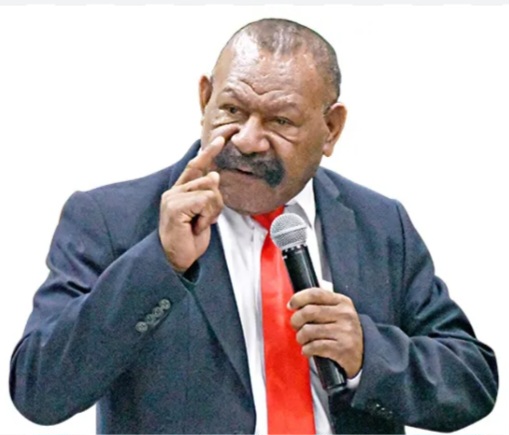Papua New Guinea’s recent appointments of King’s Counsel have stirred debate, with Morobe Governor Luther Wenge addressing criticisms raised by Sinasina-Yongamugl MP Kerenga Kua, a career senior lawyer before entering politics.
Kua alleges that these appointments, made by the Governor-General, were “illegal and without effect,” and admitted that he “has not done any research” on the matter.
Governor Wenge, a former acting judge, countered these statements, defending the appointments as lawful and emphasizing their alignment with practices in Commonwealth countries.
“Legal research will reveal that the appointments of King’s Counsel were lawful in all respects and that the Governor-General has made appointments in the same manner as has been adopted in most other Commonwealth jurisdictions,” Wenge said.
He further argued that the King’s Counsel titles bring benefits to Papua New Guinea, supporting the legal profession’s growth and reputation within the Commonwealth.
According to Wenge, the titles reflect the quality of local lawyers and help raise standards in line with countries like Australia, Canada, and New Zealand.
Wenge listed several benefits of these appointments:
– Recognition and Standards: He explained that the King’s Counsel title shows that Papua New Guinean lawyers are on par with their peers across the Commonwealth.
“The appointments demonstrate that Lawyers of the National and Supreme Courts of Papua New Guinea who practice as advocates are in no way inferior to their colleagues in Australia, Canada, New Zealand, Solomon Islands, Tonga, and other Commonwealth countries.”
– Professional Development: Wenge noted that the appointments foster a strong legal path for advocates and encourage the growth of PNG’s legal system.
“They foster the continued development of the Papua New Guinea legal profession and judicial system as the equivalent of those in other parts of the Commonwealth.”
– Talent Pool and Representation: Wenge believes that a local pool of experienced lawyers will benefit both the government and citizens, enhancing the quality of legal advice and representation available.
“The appointments create a pool of legal talent available to the State and all Papua New Guinean litigants and citizens for advice and representation.”
– Eligibility for Judges: These appointments, Wenge argued, create a clearer route for future judicial appointments.
“The appointments identify lawyers who practice as advocates who may be considered eligible and appropriate for appointment as King’s Counsel, and then later eligible for elevation as Judges.”
Wenge further highlighted the symbolic importance of this decision as Papua New Guinea approaches its 50th anniversary of independence.
He sees the King’s Counsel title as a recognition of the nation’s standing within the Commonwealth.
“It is long overdue,” he emphasized, stating that the appointments underline Papua New Guinea’s equality with other independent states.
He further commended Justice Minister and Attorney General Pila Niningi for his role in supporting this change.
“The Attorney General is to be congratulated on this historic and momentous development to our legal profession in Papua New Guinea,” Wenge stated.

